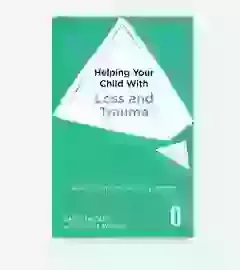Helping your child with friendship problems and bullying
Is your child struggling with friendships at school? Have they been the victim of bullying? Sometimes children have difficulties in making and keeping friends. This can be painful for children, and it is difficult for parents to know how best to help.
Helping Your Child with Friendship Problems and Bullying is a step-by-step guide, written by experts in educational and child psychology, for any parent who is seeking suggestions and guidance on how best to support their child.
In this edited extract from we look at what to do when friendships run into difficulties.
Most children have difficulties with their social relationships at some point. Many of these experiences are typical, and helping children learn how to get on with others and resolve conflicts is a very important aspect of the role of a parent.
If your child is experiencing problems with their friends, the first sign may be changes in their behaviour such as:
- Not wanting to go to school
- Becoming withdrawn and losing confidence
- Displaying reluctance to go to social gatherings where other children will be present
- Crying more than usual or appearing sensitive in situations where they would have previously been happy
If this is the case, explain to your child what you have observed in a calm manner. For example: ‘I’ve noticed that you haven’t wanted to go to Scouts two weeks on the run and that’s unusual. I’ve been wondering if there is something that’s worrying you?’ Listen carefully to the response. If your child is unwilling to talk to you when you first ask, let them know that you are prepared to listen to them at any time, when they feel ready.
Talking to children about relationships
As a parent, it can be really difficult when your child has difficulties with their friendships. In these situations, the following ideas may be helpful:
Acknowledge how your child feels
If your child has not named how they are feeling, try to find words to describe the emotion (e.g. angry, embarrassed, scared) and reflect this back to your child in a statement. For example:
- ‘It sounds like you felt very angry about that.’
- ‘I can imagine that you were very embarrassed when she said that.’
- ‘That must have been very scary.’
This will communicate compassion and help your child to feel that they are really being listened to and that you understand how they are feeling.
Wait! Hold back from giving advice and presenting instant solutions
Here are three possible responses that a parent could make to their child’s statement that their friend is not talking to them:
- ‘That sounds upsetting.’
- ‘Not again! Time you found another friend.’
- ‘You should stop talking to her for a change.’
The first response suggests that the parent knows how the child is feeling. This opens up the possibility of an empathic conversation, whereas the second and third responses provide instant solutions that are unlikely to be helpful to the parent in learning about how the child feels. These statements are also unlikely to lead on to a discussion about how the child could manage the relationship with their friend in the future.
Spending time talking about your child’s feelings is important, as it is through empathic conversations that children can be guided towards developing better self-awareness, and the discovery of alternative courses of action and ways of thinking and feeling.
Try to avoid interrogations
Some children find it difficult to talk about stressful situations and to understand and label their feelings. They also might feel ashamed about problems with their friends and may be concerned that they will be negatively judged. For that reason, when you open up conversations with your child about issues that may be upsetting them, do so gently. You could start off asking a few open questions (i.e. not questions that need a ‘yes’ or ‘no’ answer). Some examples are:
‘How did you get on in . . .?’ (Use a specific activity if possible, showing that you are interested in what they are doing and know something about their interests or what was particularly worrying them.)
‘What did you do at playtime/break time today?’ ‘What did you choose for golden time this week?’ ‘Who did you play/work/do that with today?’ ‘What did [teacher] say about . . .?’
How did [friend] get on with that today?’
This is not intended as a script, as that would feel like an interrogation!
Try to avoid phrasing questions in a way that leaves your child feeling as if they are being interrogated, as they may become defensive. So rather than asking direct questions such as ‘why are you worried?’, it is better to enquire ‘you seem a little worried today’. Receive what your child tells you and acknowledge it. You can do this with gestures (eye contact, nodding), short statements (‘oh, I see . . .’) or by naming the feeling (‘that sounds scary’).
Talk about the perspectives of others
Once you have listened to and acknowledged your child’s perspective, you can open up discussion about the perspectives of others, if relevant. Help them to think about how they have responded in a particular situation (the thoughts and feelings they had) before considering the responses of others. This will help your child understand:
- Why they responded as they did in that situation
- Why others might have responded and behaved in the way that they did in that situation.
Considering the thoughts and feelings of their friends is important to improving how they reflect on alternative perspectives. It will help them understand that there can be many different interpretations of a particular situation, which can influence and explain how others behave. Rather than challenge the child’s view by stating ‘it doesn’t really matter’, ‘there are plenty more birthday parties that you will be invited to’ or ‘well, you don’t have to invite them to yours then’, it is much better to listen, empathise and instil a sense of hope that, with help, your child will be able to find a way to deal with the situation.
Do not voice judgements about other children, their parents or the school. Do not encourage your child to ‘fight back’, ‘stand up for yourself’, ‘make them pay’ or ‘reject them and tell other children to do so too’. Try to remain constructive and reassure your child that you will try to help them find a resolution to the problem. The most appropriate action will depend on the reason for the relationship problems that your child is experiencing (e.g. termination of friendship, bullying, loneliness).
Try not to feel responsible for difficulties with your child’s friendships. Research suggests that there are multiple influencing factors and many complexities to relational difficulties. Your guilt, blame or anxiety will not help your child. What is most important is that your child believes that change is possible. You can help them to make those changes through liaising with the school, finding alternative activities and social groups, and eliciting the help of others to mediate new relationships. In the next chapter, we look at supporting your child further when they are socially neglected or lonely.




